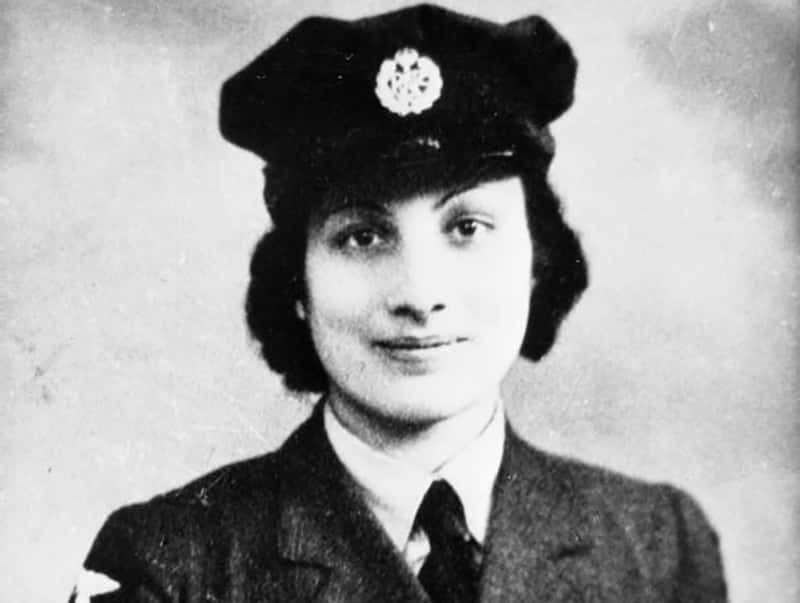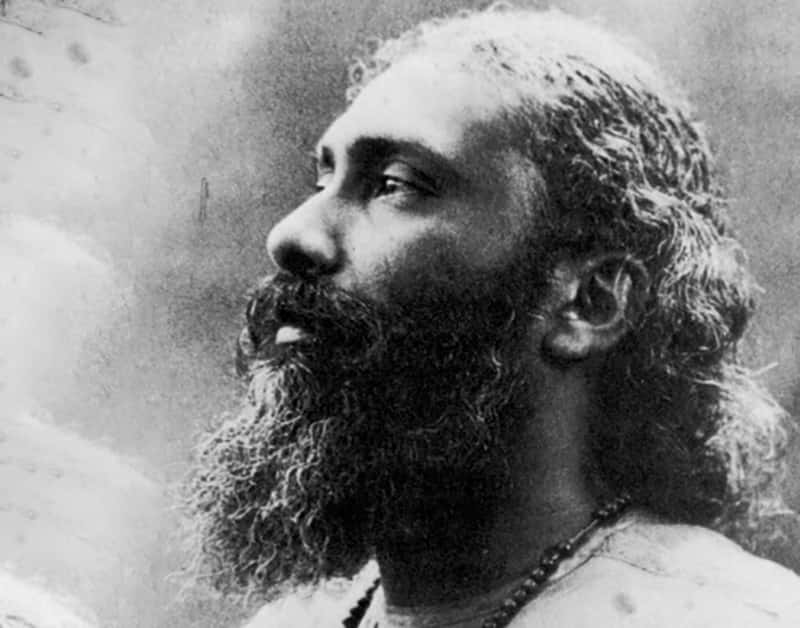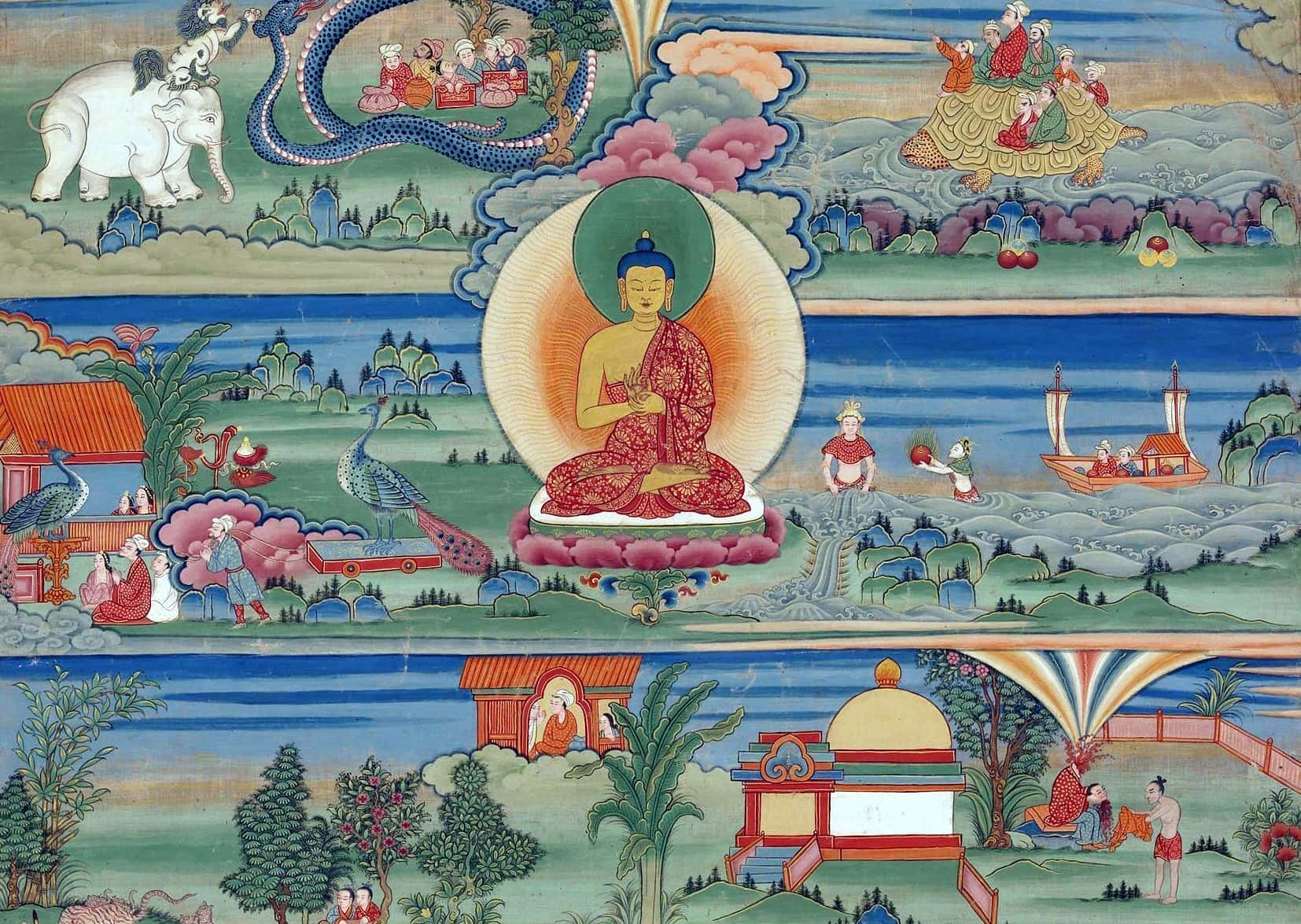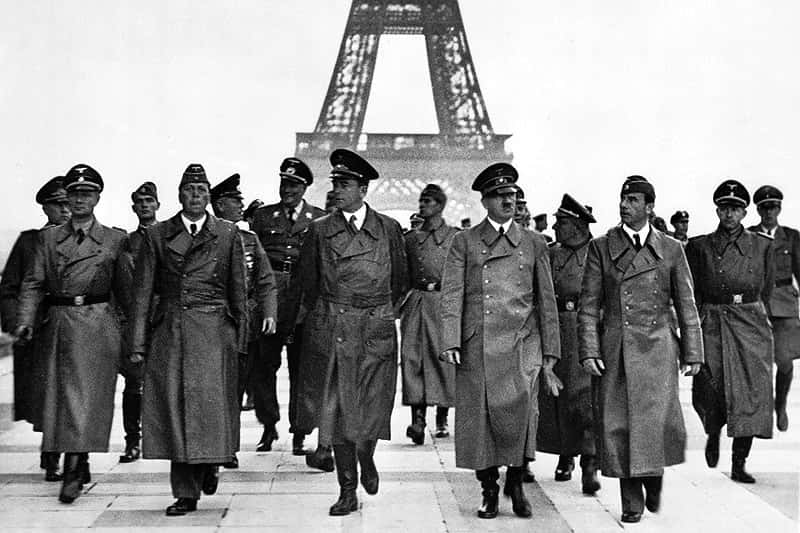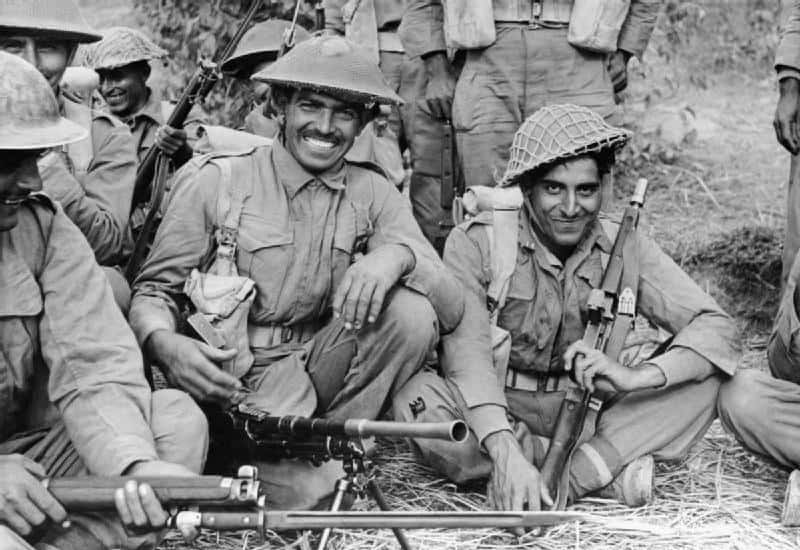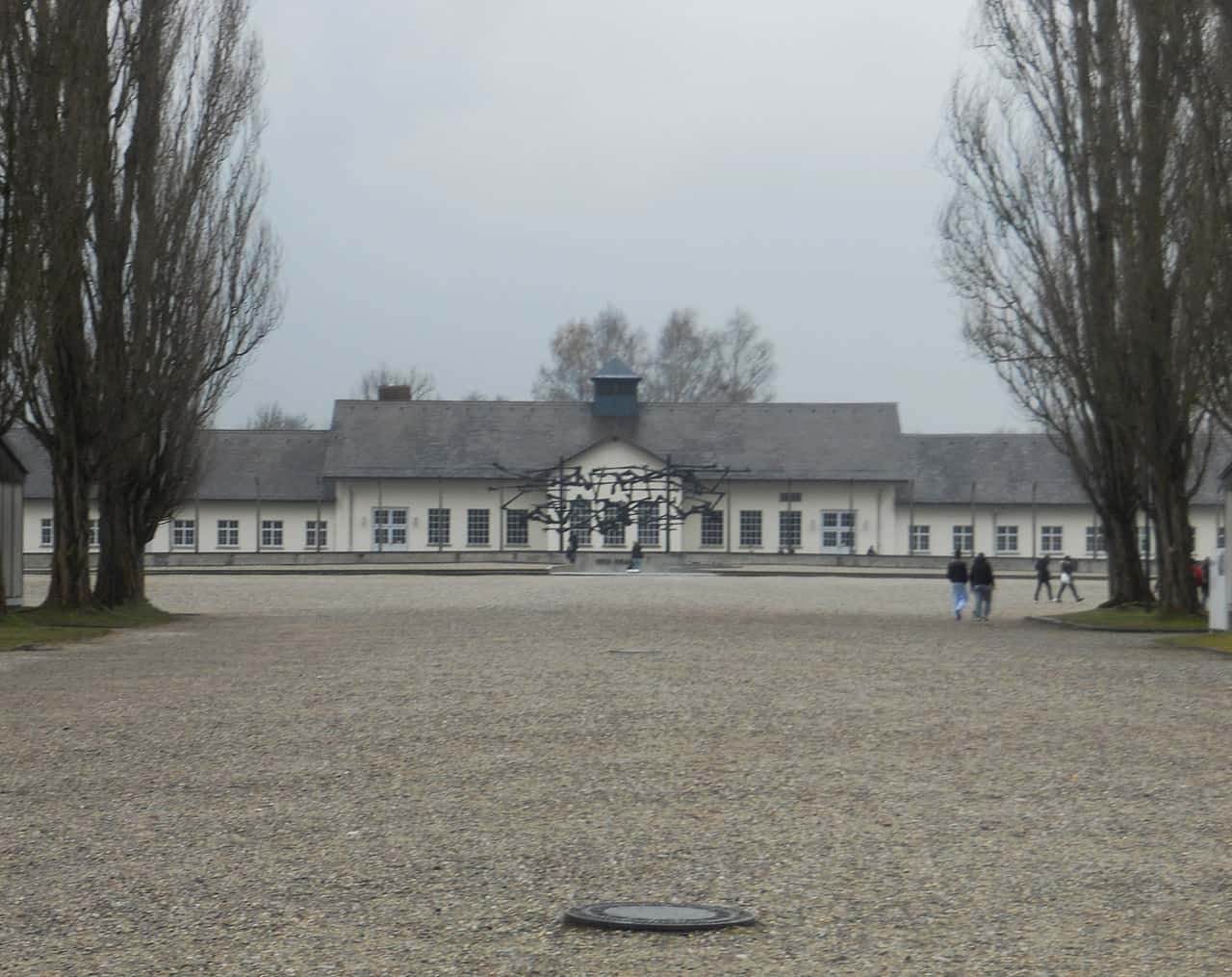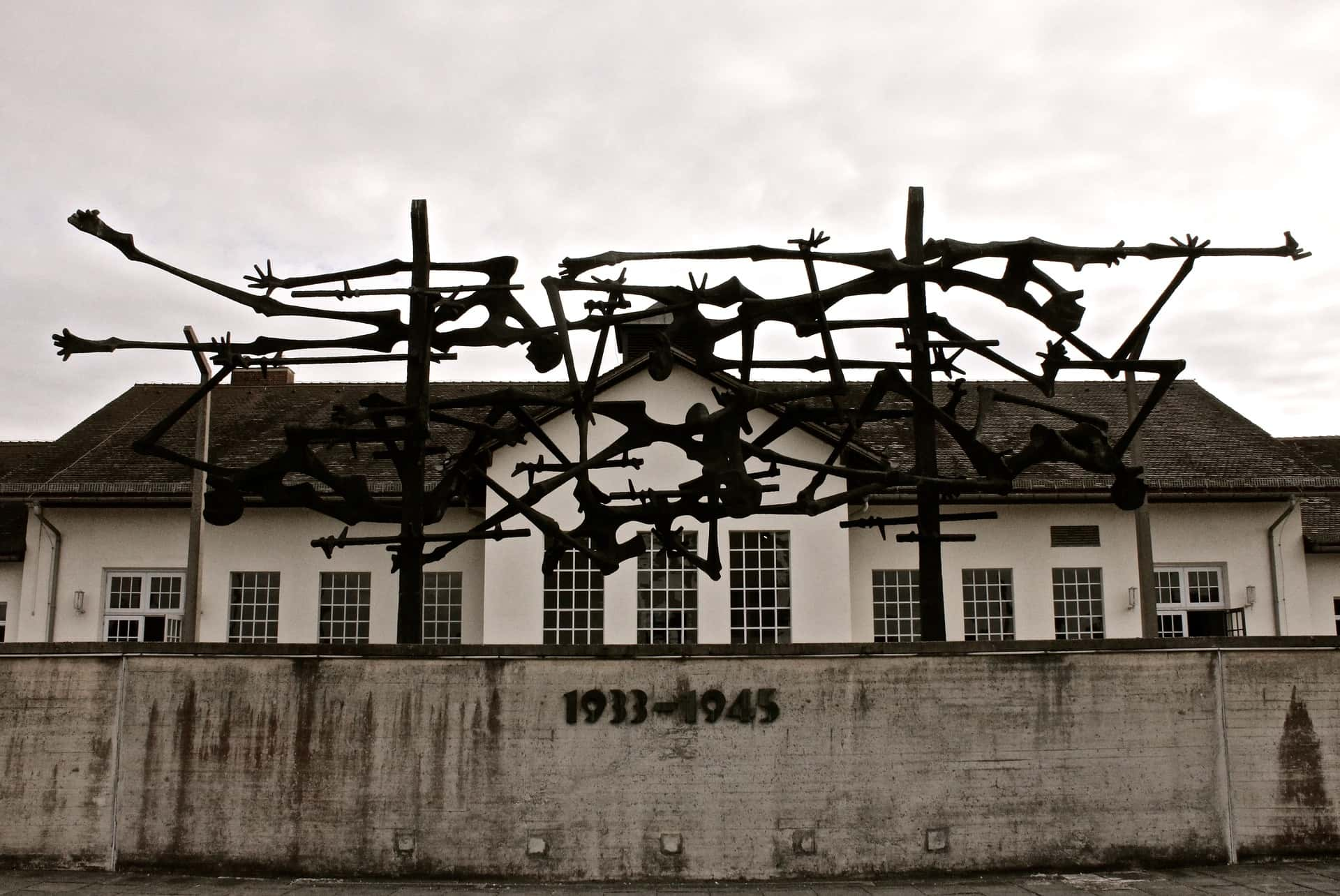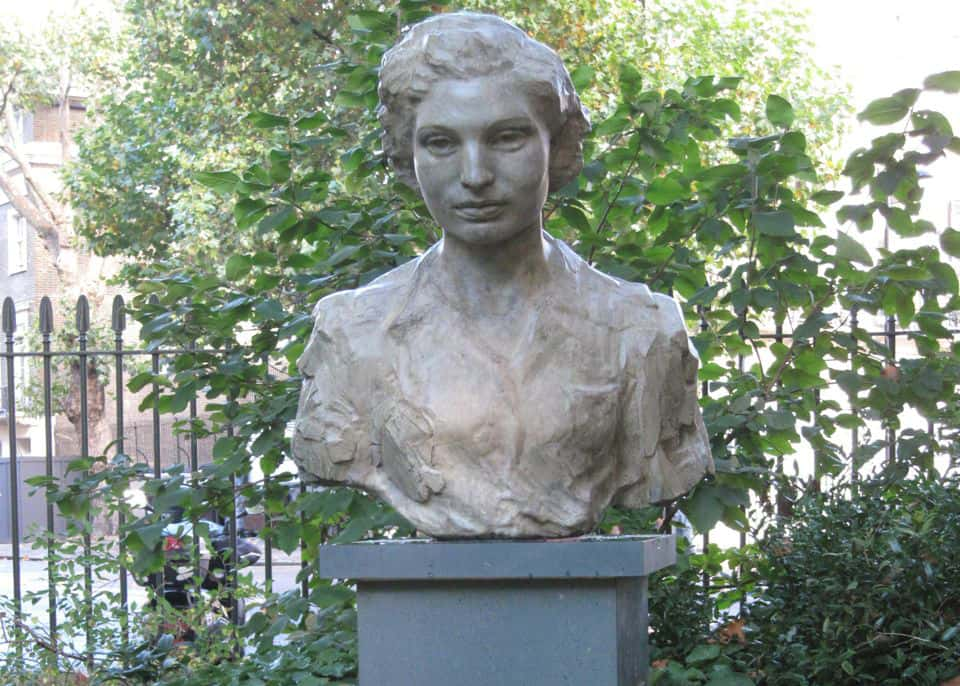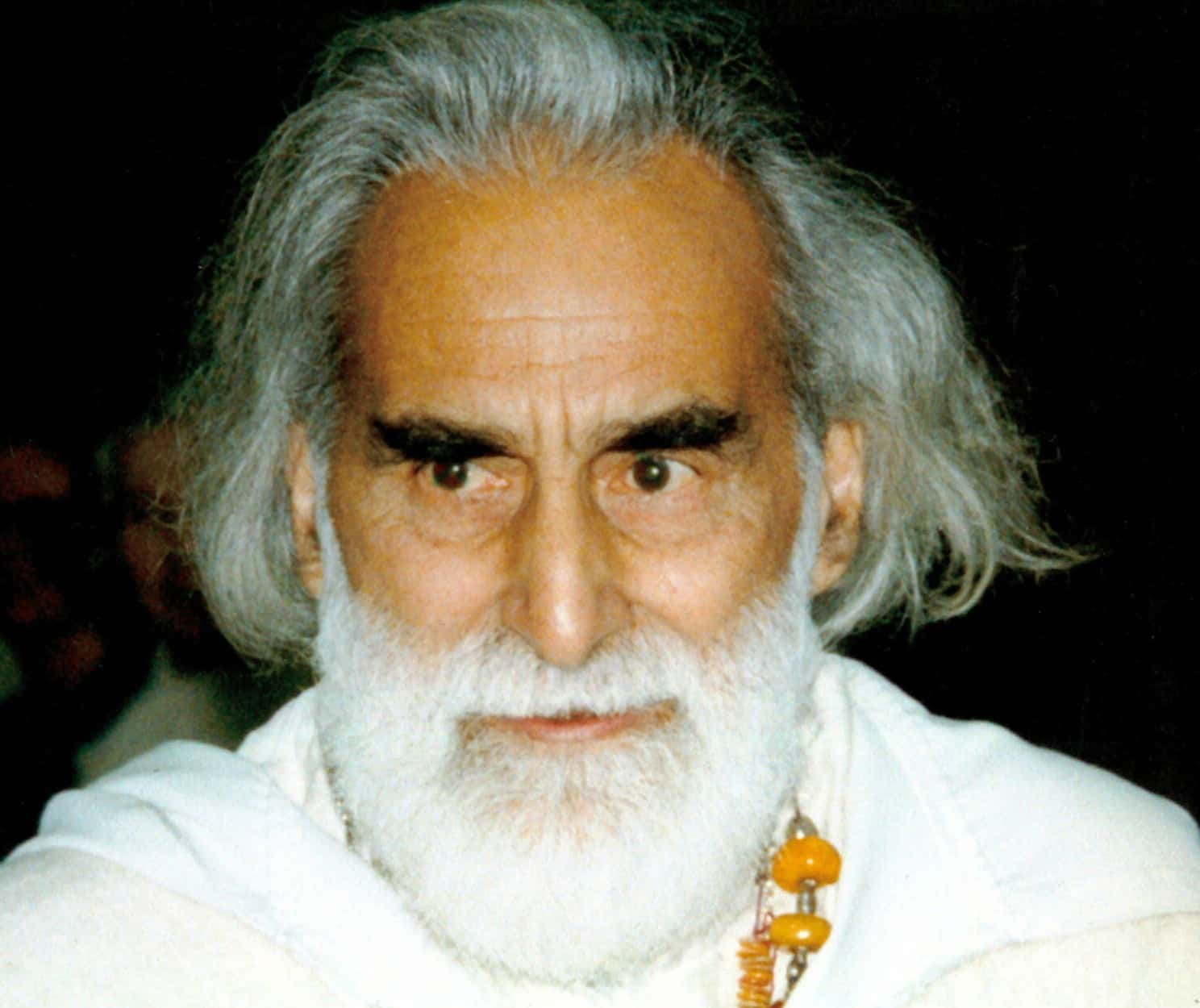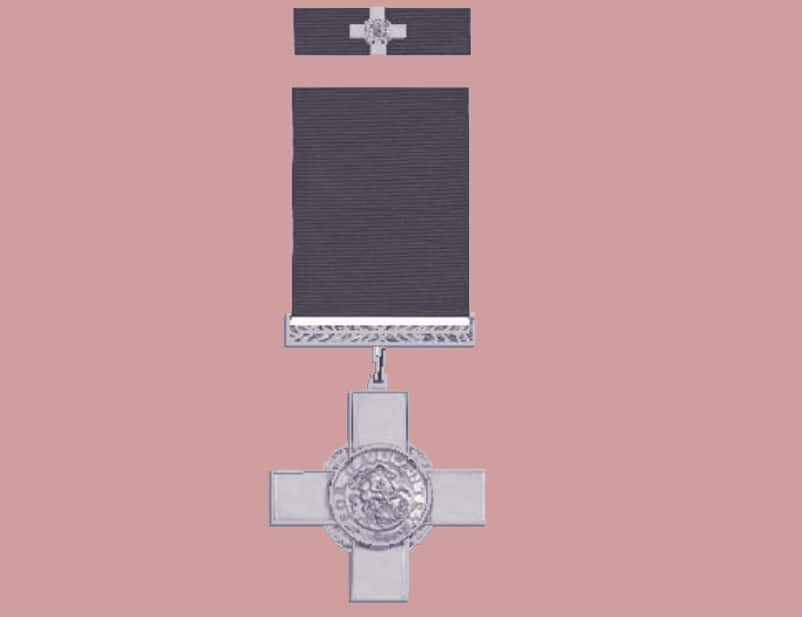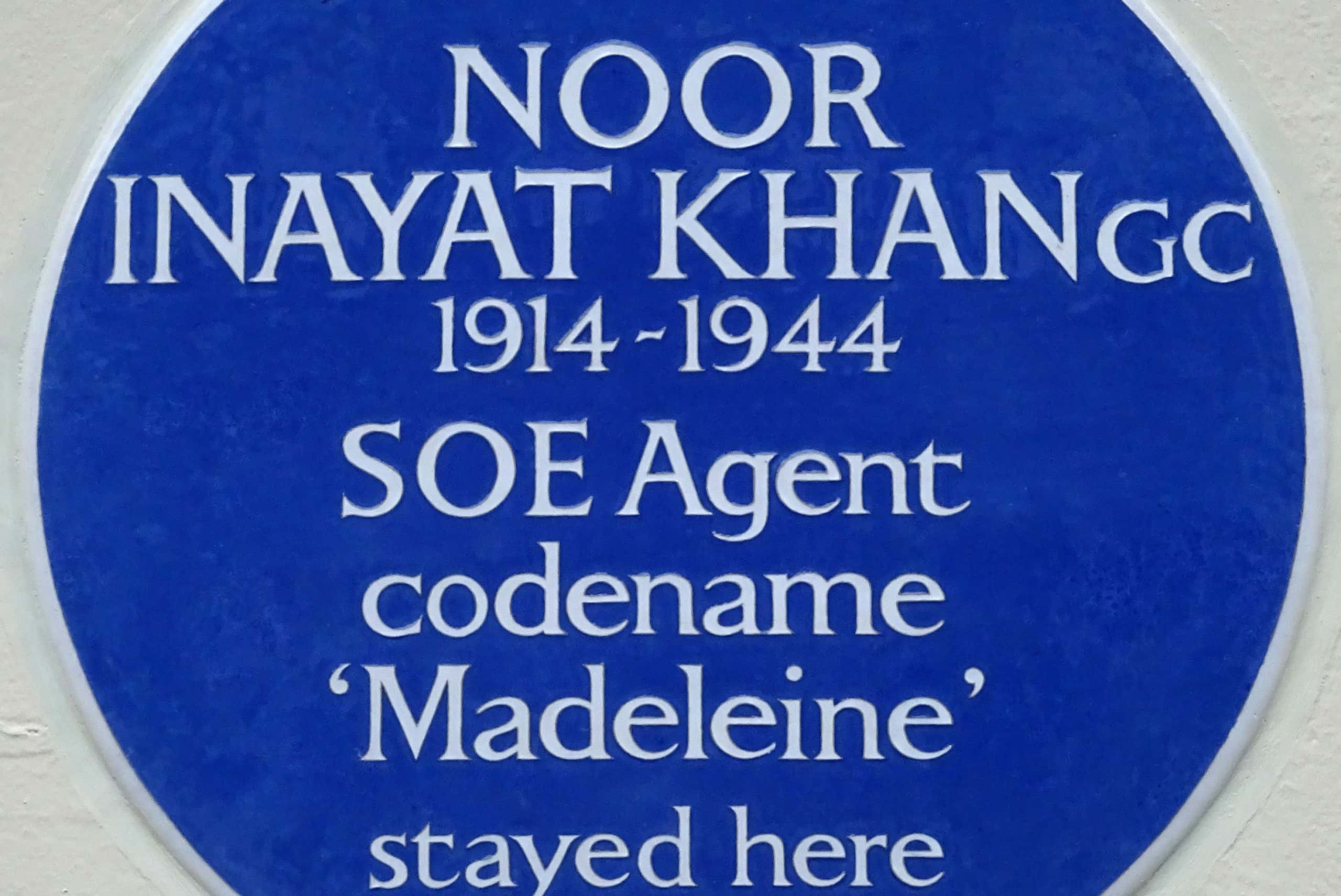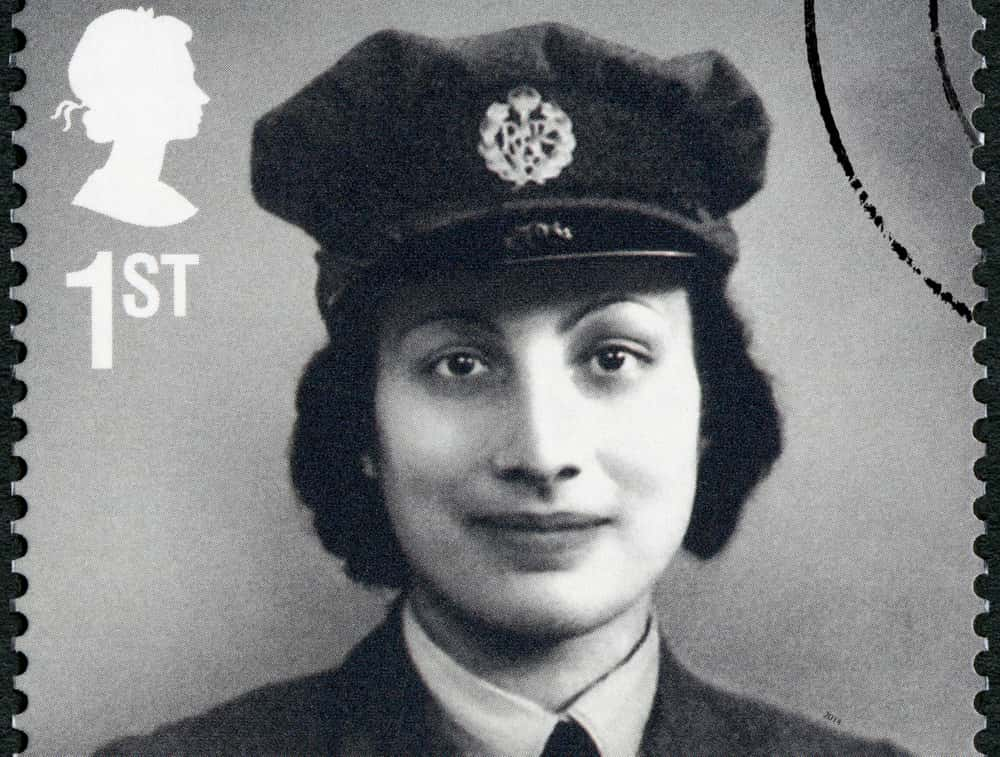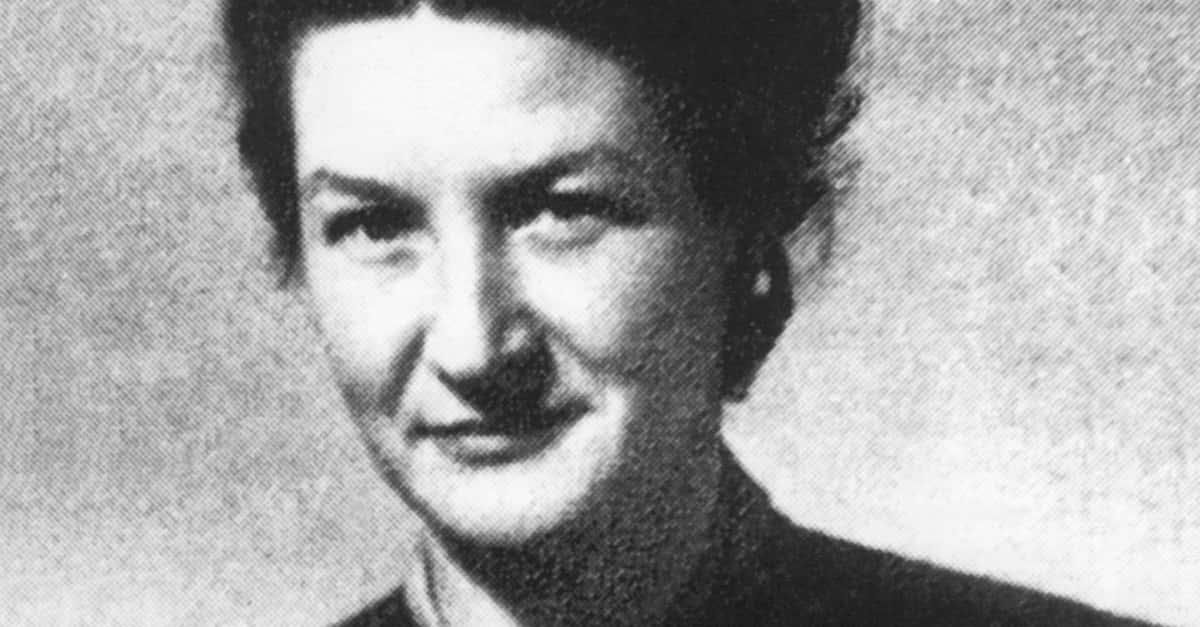Forget James Bond or Mata Hari. Noor Inayat Khan was the most unlikely of heroes. She was a pacifist, poet, and composer turned WWII spy—with some very complicated motives. Noor Inayat Khan was nearly erased by history, but of all the most daring WWII spies, her story might be the most jaw-dropping—and the most tragic.
1. She Was Related To Royalty
Born on January 1st, 1914 to Hazrat Inayat and Pirani Ameena Begum, Noor-un-Nisa Inayat Khan might have been a princess in another lifetime. Her father was the great-great-grandson of the famous Tipu Sultan, ruler of Mysore in 18th century India. And, if nothing else, she certainly inherited courage from the “Tiger of Mysore,” as we shall see.
2. She Had Roots In Many Places
Noor Inayat Khan had ties to many countries. Her father was an Indian Muslim who traveled to the West to spread his Sufi message of love and peace through music. Her mother was an American who converted to Islam after she met and fell in love with him. Noor spent her early childhood in England and France. Though she never lived in India, she felt strongly about the Indian Independence Movement.
She also had an emotional connection with France, but still identified as an Indian throughout—and this would have a massive influence on what happened to her later.
3. She Had A Happy Childhood
Noor’s father Inayat Khan was a Sufi mystic in the true sense of the word. His children learned his pacifist ideals, and inherited his musical talents. Their house was always full of “music and meditation,” and guests were always welcome. And where were Noor and her siblings when guests came over? Putting up little concert performances for them, of course! It wouldn’t be the only performance that she put on in her life…
4. She Was A Musician
But it wasn’t just that Noor had a feel for music and enjoyed singing with her family. She was very serious about it and went to the Paris Conservatory to learn music professionally. She learned how to play the harp and piano, and was composing music before long. But this wasn’t the end of her accomplishments.
5. She Might Have Had A Very Different Career
Noor may have loved music, but she had other dreams and interests too. She was studying Child Psychology at the Sorbonne at the same time that she was pursuing her musical passions, so who knows? It’s possible that she planned on working as a psychologist while playing music for just herself. Or maybe she was trying to keep her options open after she went through a great personal tragedy.
6. She Had To Grow Up Suddenly
When Noor was only 13, a devastating tragedy struck her family. Inayat Khan hadn’t been well for a while and went to visit India when he was still sick. In a heartbreaking turn of events, he never made it back to his family and died in India. They were grief-stricken by the news. It fell on Noor’s shoulders to support them all—and it was an incredibly heavy burden.
7. She And Her Siblings Shared A Special Bond
Although the whole family mourned Inayat Khan’s passing, his wife took the loss especially to heart. She confined herself in her room upstairs, refusing to come down or meet anyone. Noor had to step up and take on a maternal role for her three younger siblings. The tragedy brought them closer to each other.
8. She Found A Creative Outlet
Naturally, being responsible for the entire household can’t be easy on any 13-year-old, and Noor found the monotony of her daily routine overwhelming at times. Kudos to her though; instead of rebelling against her lot, she found a better, more creative way to channel her frustration. She started writing poetry. Eventually, she became a regular contributor to children’s magazines and the French radio.
Really, was there anything the girl couldn’t do?
9. She Authored A Book
Noor’s dabbling in poetry and magazine articles led to another huge achievement: She became a published children’s book author. Her book’s title was Twenty Jataka Tales. Her inspiration was the Jataka stories from Buddhist tradition, and it came out in England in 1939.
Clearly, Noor Inayat Khan was ready to make her mark on the world.

Sign up to our newsletter.
History’s most fascinating stories and darkest secrets, delivered to your inbox daily. Making distraction rewarding since 2017.
10. She Had Strong Beliefs
As a young girl, Noor was shy, sensitive, and imaginative. She strongly believed in her father’s ideals of pacifism and the oneness of religion. Why then, did she choose to actively participate in the War, you may ask? Well, it was two reasons. She strongly believed in fighting against fascism and was against the German Occupation of France.
The second reason was much more complex.
11. She Cared About India
She may have never lived there, but Noor Inayat Khan’s Indian father had been a strong nationalist. Noor felt it was essential for Indians to play a role in the fight against German atrocities. She hoped that once the British realized that Indians had fought alongside them, they would grant them independence—but she was also a realist.
Noor also publicly acknowledged the possibility that if she and other Indians aided the British against Germany, that they might then have to turn around and fight their former allies for their freedom. Either way, she was in for a wild ride.
12. She Fell In Love
Before Noor’s life changed so drastically, she was a regular girl, with regular heartaches and problems. She fell in love with a Jewish musician while studying music at the Paris Conservatory. Unfortunately, her family was completely against the match and she eventually broke off her informal engagement to the guy. Little is known about him, but maybe her short association with him further aligned her against what the Germans were doing.
13. She Was Quick To Volunteer
When Britain and France announced their intention to fight against the Germans, Noor immediately joined the Red Cross and began training there. She wouldn’t stay in France for long after this, but this initial decision to play a role in the fight against the Germans would help her with her choices later on.
14. She Had To Leave France
German forces entered France in 1940. Noor had been living with her family in her childhood home, Fazal Manzil (The House of Blessings), on the outskirts of Paris—until they were forced to make a chilling decision. She and her younger brother, Vilayat, decided to abandon their home and move the family to England immediately.
This was also the turning point when they decided they would formally volunteer to help the British officers, in whatever way they could.
 Enemy of the Reich: The Noor Inayat Khan Story (2014), Unity Productions Foundation
Enemy of the Reich: The Noor Inayat Khan Story (2014), Unity Productions Foundation
15. She Joined The Air Force
While brother Vilayat joined the RAF on reaching London, Noor volunteered for WAAF—the Women’s Auxiliary Air Force. The organization took her in as an Aircraftwoman 2nd Class and began training as a wireless operator. Unbeknownst to Noor, a cryptic and secretive organization had its eye on her…
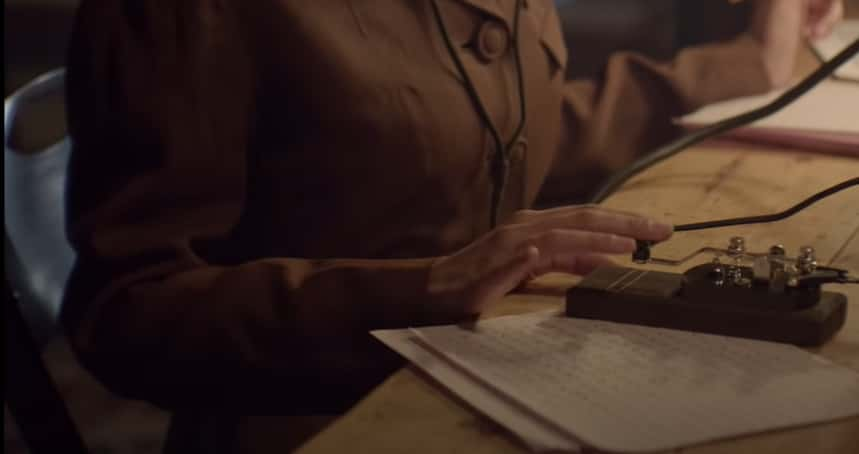 Enemy of the Reich: The Noor Inayat Khan Story (2014), Unity Productions Foundation
Enemy of the Reich: The Noor Inayat Khan Story (2014), Unity Productions Foundation
16. She Impressed The Right People
Noor had a couple of things going for her. For starters, she was fluent in French, and because she’d lived in France for most of her life, she knew her way around it. These advantages, coupled with the fact that she’d already received some training as a wireless operator put her on the radar of the Special Operations Executive (SOE) The SOE was a secret British organization that conducted espionage operations against Axis powers.
When they heard about Noor, they decided they had just the right job for her. However, there was a dark side to it all.
17. Her Dream Came True
The SOE called Noor in for an interview with their recruiting officer. At that point, she had no idea about the organization, or what it did. When she found out that they were offering her a wireless operator’s role in Occupied France, she accepted immediately—even with a disturbing catch. They clearly told her that she’d have no protection and that if she was caught, she’d be shot.
Are you also getting a feeling that this isn’t going to end happily?
 Enemy of the Reich: The Noor Inayat Khan Story (2014), Unity Productions Foundation
Enemy of the Reich: The Noor Inayat Khan Story (2014), Unity Productions Foundation
18. Her Training Began
From there onward, there was no looking back. Noor’s training began in earnest. Her instructors taught her to pick locks, handle explosives, disguise herself, send letters in code...you know, classic spy duties. Her code name was Madeline, supposedly a character from one of her stories, and it seemed like she would receive departure orders soon.
However, not everyone thought she was the best choice for the job.
19. She Received Mixed Reports
Noor’s childlike demeanor and her pleasant, non-confrontational personality became a cause of concern for a few of her superiors and colleagues. One of them lamented the fact that she wasn’t “overburdened with brains” (rude), another thought she would completely fail at interrogation, and many thought she was physically unsuited for her role.
Some raised questions about her admission that she didn’t want to do anything “two-faced” and that she seemed to dislike handling guns. Still, she didn’t pay mind to their doubts—she’d set her mind to helping the Allies, and she was determined to do it.
 Enemy of the Reich: The Noor Inayat Khan Story (2014), Unity Productions Foundation
Enemy of the Reich: The Noor Inayat Khan Story (2014), Unity Productions Foundation
20. She Had A Staunch Supporter
In spite of all these negative reports, SOE’s Intelligence Officer, Vera Atkins, remained convinced about Noor’s commitment and ability to handle the situation in France. Britain needed a spy in France by a certain date, and Atkins was so sure Noor was ready that she decided to send her even though her training wasn’t complete.
Was it the right choice? We’ll soon find out…
 A Call to Spy (2019), SMT Pictures
A Call to Spy (2019), SMT Pictures
21. Her Colleagues Intervened
The agents initially went to Buckinghamshire to get used to their new identities and for the mission ahead—but when Noor Inayat Khan arrived, she appeared completely depressed. So, in an unusual turn of events, her conducting officer and fellow agents wrote to Atkins to register their uneasiness about sending Noor to the field.
Did Noor have a premonition of the fate awaiting her in France? Or was she having second thoughts?
 A Call to Spy (2019), SMT Pictures
A Call to Spy (2019), SMT Pictures
22. She Had A Chance To Back Out
Atkins was surprised at the intervention and called Noor back to London to make sure she was ready for active duty. She offered her the chance to reconsider. The only thing anyone would hold against her, Atkins said, was if she went in the field and let her comrades down. Noor was upset to hear the negative reports about her.
Nevertheless, she did have a reason for feeling down and had one favor to ask from Atkins.
 A Call to Spy (2019), SMT Pictures
A Call to Spy (2019), SMT Pictures
23. She Aired Her Concerns
Noor assured Atkins that she was completely ready for her mission—but she finally shared the heartbreaking reason she’d seemed reticent. The only thing upsetting her was the thought that she’d lied to her mother and she worried how she might take the news of her disappearance, if that ended up happening.
She asked Atkins to inform her mother that she was missing only if they were sure she’d been caught and executed. Atkins agreed to this demand, much to Noor’s relief.
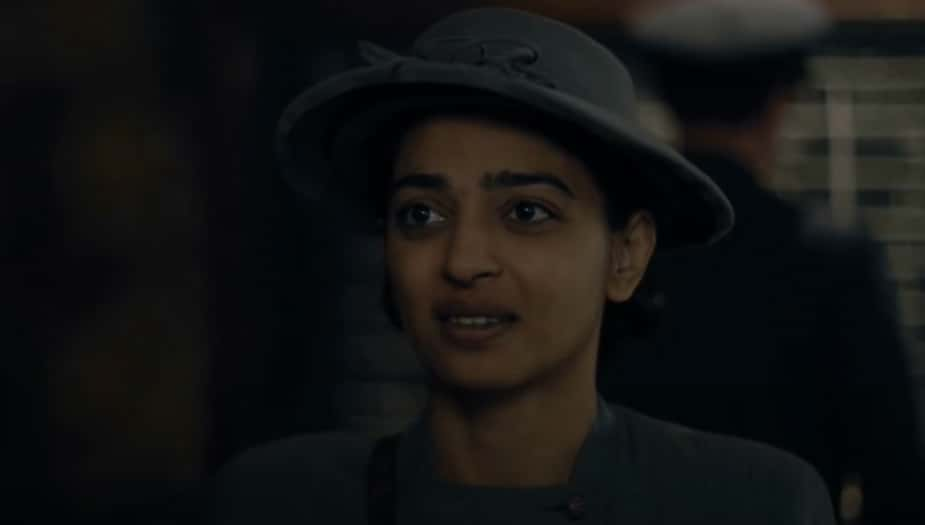 A Call to Spy (2019), SMT Pictures
A Call to Spy (2019), SMT Pictures
24. Her Mission Was Dangerous
Noor left England on a Lysander, armed with a fake passport, some francs, her pistol and four pills, which included a cyanide pill. All agents had this as a precaution: If caught it was a means to escape the inevitable interrogation that would follow. It’s hard to overstate how dire Noor’s situation was.
In 1943, the life expectancy for a wireless operator was six weeks—and she still chose to go willingly.
 A Call to Spy (2019), SMT Pictures
A Call to Spy (2019), SMT Pictures
25. She Faced An Unexpected Setback
When she got to France, the Prosper circuit was there to greet her. They were the largest SOE network in Occupied France—but they were about to make a disturbing discovery. Soon after her arrival, the Gestapo started rounding up her fellow agents. Someone had betrayed them, and Noor had to be extra careful.
 A Call to Spy (2019), SMT Pictures
A Call to Spy (2019), SMT Pictures
26. She Refused To Leave
When London contacted Noor and asked her to leave because it was too dangerous for her to stay on, her reaction was chilling. She refused point-blank. She realized the danger, but she was adamant that she wanted to stay back to provide Britain with valuable information.
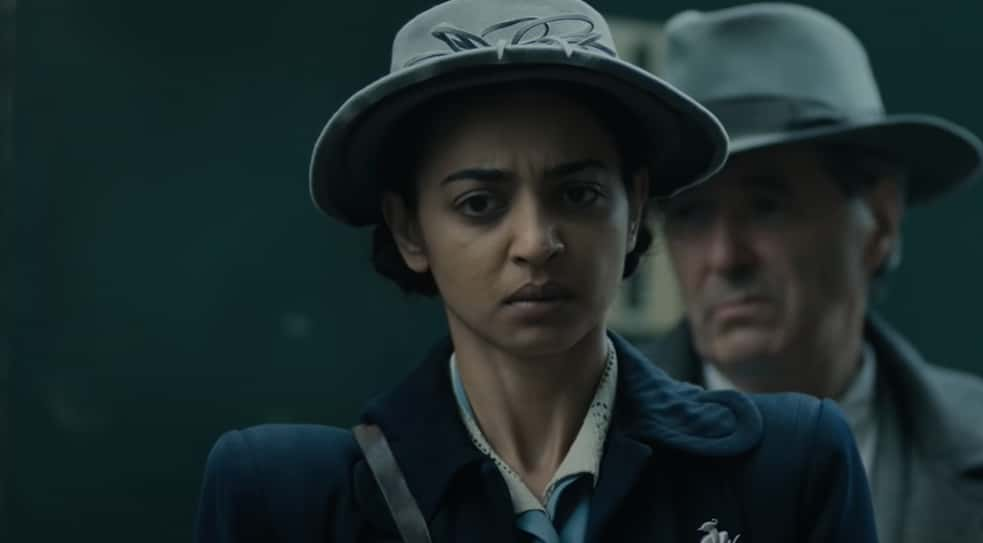 A Call to Spy (2019), SMT Pictures
A Call to Spy (2019), SMT Pictures
27. She Was Too Smart For The Enemy
Despite her quiet and unassuming façade, Noor Inayat Khan was as daring as they get. She managed to fool the Germans several times. Noor carried her wireless with her everywhere in a suitcase, and once when some German officers stopped her to ask what it was, she told them it was a “cinematographic apparatus.” Too embarrassed to admit they had no idea what a “cinematographic apparatus” was, the officers let her go.
Another time, she asked a German officer to help her put up an aerial so she could listen to the radio. He obliged, not realizing she’d use the same aerial to transmit wireless messages to London.
 Enemy of the Reich: The Noor Inayat Khan Story (2014), Unity Productions Foundation
Enemy of the Reich: The Noor Inayat Khan Story (2014), Unity Productions Foundation
28. She Was Skilled At Evasion
Usually, Noor tried to keep away from any and all German officers by changing disguises and locations. She took help from old French acquaintances and friends, and used different addresses to transmit her messages. In this way, she managed to identify locations for arms drops and to organize safe passages for wounded airmen.
She was one smart cookie, this girl.
 Enemy of the Reich: The Noor Inayat Khan Story (2014), Unity Productions Foundation
Enemy of the Reich: The Noor Inayat Khan Story (2014), Unity Productions Foundation
29. Her Messaging Was Unique
Noor was a “natural signaller.” Her experience with the harp had helped her master the style of tapping out messages on the wireless easily. However, she had chilblains (a type of painful red bump) on her fingers, which earned her the title “Bang Away Lulu.” Not the most complimentary name she could have gotten, but hey, she was getting the work done.
30. She Lasted Longer Than Others
Remember how we said a wireless operator’s life expectancy in 1943 was just six weeks? Well, Noor lasted over three months before someone finally discovered her. And it didn’t come out of nowhere. They knew she existed, and she evaded them successfully that whole time. She may have even lasted longer, if not for a shocking deception.
 A Call to Spy (2019), SMT Pictures
A Call to Spy (2019), SMT Pictures
31. Someone Betrayed Her
So how did the enemy find out about Noor Inayat Khan? Someone close to her betrayed her. Although no one knows for sure who the mole was, it was either double agent Henri Dericourt, who had received her the night she landed, or her circuit leader’s sister, Renee Garry, who supposedly sold her address to the Germans for 100,000 francs.
There may be another, more brutal reason for the betrayal though.
32. It Could Have Been Jealousy
Renee Garry was supposedly upset because she believed a man she was interested in, SOE agent France Antelme, had chosen Noor as the object of his affections instead of her. And as we all know about scorned women and their fury, she decided this was the best way to remove Noor from the equation. She was eventually tried but escaped conviction by one vote.
33. She Loved The Color Blue
Apart from the betrayal, there was another thing that might have contributed to Noor’s capture: Her love for the color blue. Apparently, a fellow resistance fighter wrote in his memoir that Noor’s entire wardrobe was blue. The Gestapo didn’t know what she looked like, but had this little piece of information, and used it to finally track her down.
34. She Didn’t Go Without A Fight
When the Germans came to arrest her, Noor refused to go calmly. She bit and clawed and kicked at her captors, but they eventually subdued her and took her to the Gestapo headquarters. She made her first escape attempt by demanding to take a bath. When the door closed to the bathroom, she escaped to the roof, but her captors realized what her plan was almost immediately.
 Enemy of the Reich: The Noor Inayat Khan Story (2014), Unity Productions Foundation
Enemy of the Reich: The Noor Inayat Khan Story (2014), Unity Productions Foundation
35. She Almost Escaped
Noor’s second escape attempt almost worked. She and two other prisoners managed to loosen a sky window and escaped onto the roof of the building. They may have actually been able to run away if an RAF air raid hadn’t occurred at that moment. The German officers checked their room when the air raid siren went off and caught them on the roof before they could run away.
 Enemy of the Reich: The Noor Inayat Khan Story (2014), Unity Productions Foundation
Enemy of the Reich: The Noor Inayat Khan Story (2014), Unity Productions Foundation
36. She Remained Defiant
Noor was fearless in the face of adversity. She refused to sign a declaration stating that she wouldn’t try to escape in the future. The Gestapo kept her at their headquarters for some more time for the interrogation but eventually moved her to a prison in Pforzheim. They kept her in solitary confinement, chained by her hands and feet.
37. She Was Tight-Lipped
When the SOE had performed a mock interrogation during Noor’s training, she crumbled like a cookie. So, did the same thing happen when the Gestapo were the ones interrogating her? Absolutely not. Noor didn’t give away anything to her interrogators and constantly lied in answer to their questions. Sadly, her efforts to remain silent didn’t keep her fellow agents safe, all for one tragic reason.
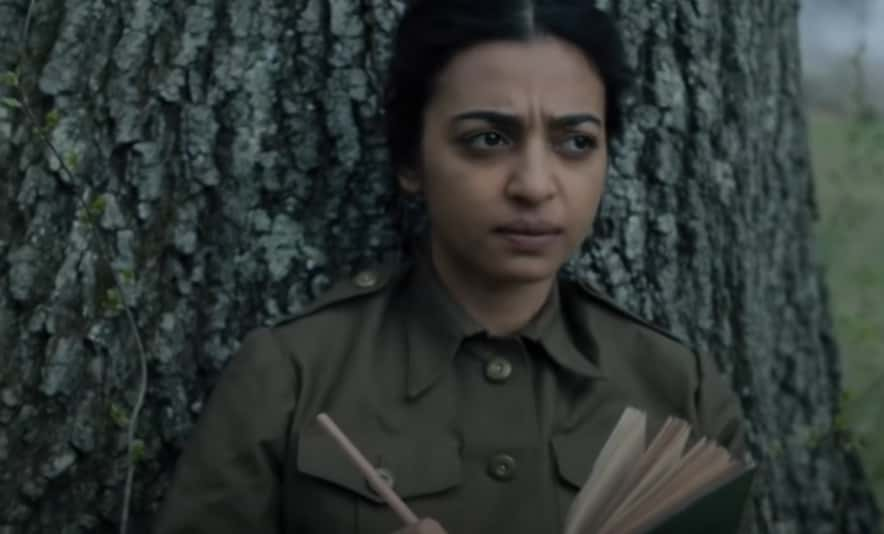 A Call to Spy (2019), SMT Pictures
A Call to Spy (2019), SMT Pictures
38. She’d Made A Mistake
Remember how Noor hadn’t completed her training because they needed her in France? That was probably what laid the ground for Noor’s fatal error. She’d kept a record of all her messages in a notebook that the Germans found when they caught her—and they hatched a terrifying plan. They pretended to be her and sent messages to London this way.
This led to a heartbreaking result: The Germans were able to capture and execute quite a few SOE agents.
39. Her Confinement Was Painful
While in Pforzheim, the Germans routinely tortured and interrogated Noor. She stayed steadfast, refusing to betray any of her own, but at night the other prisoners could hear her crying. She was able to scratch her alias, Nora Baker, on her food bowl, which is how the prisoners knew who she was. This information helped scholars discover what Noor endured—and her tragic fate.
40. She Didn’t Know What Awaited Her
A German officer took Noor out of Pforzheim prison after she’d spent ten months there in solitary confinement. She and three other prisoners boarded the train to Munich with an escorting officer, who told them that they would have to work as agricultural laborers. This was a lie, of course. The women were actually being taken to the Dachau concentration camp.
41. Her Ordeal Wasn’t Over Immediately
The officer had execution orders for all four of the women he was taking to Dachau. However, once they got there, Noor discovered that she would have to suffer some more. It could have been her dark skin or the fact that she was “highly dangerous.” Either way, they delayed her execution…at first.
42. Her End Was Heartbreaking
Already frail and struggling from her months-long confinement, poor Noor was in terrible shape. The officers kicked her and beat her up further all night long. Finally, when her body slumped on the ground, half-conscious, one of the guards told her to kneel and shot her in the back of her head.
43. Her Final Words Were Defiant Too
In spite of the extreme pain she must have experienced, Noor refused to plead with her tormentors. Even her last words were “liberte” instead of “mercy.”
44. Her Family Dreamed Of Her
Noor’s execution took place in September 1944. The same night her mother and her brother Vilayat dreamed of her, surrounded in blue light. She told them she was free.
45. Her Brother Felt Guilty
Vilayat Khan said that he felt guilty because once when Noor had told him that she didn’t want to kill anyone, though she wanted to fight the Germans, he’d said to her that it just meant that they’d both have to involve themselves in the “most dangerous positions, which would mean no killing.” Vilayat would go on to live until the ripe old age of 87, so the guilt is understandable.
46. They Awarded Her Bravery
In 1946, the French government awarded Noor Inayat Khan the French Croix de Guerre with a silver star. Britain awarded her with the George Cross in 1949. This is the highest award for gallantry, not in the presence of the enemy.
47. History Forgot Her
Unfortunately, Noor Inayat Khan was completely forgotten for a while. For years, no one knew of the fearless Indian-French woman who managed to fool the Germans for over four months and helped the British in their resistance efforts single-handedly. At one point, Noor alone was doing the work of six wireless operators combined.
 A Call to Spy (2019), SMT Pictures
A Call to Spy (2019), SMT Pictures
48. Her Biographer Revived Her Legacy
Noor Inayat Khan’s story might have remained buried in the annals of history if it wasn’t for journalist Shrabani Basu. Basu researched Noor’s story and published her biography, Spy Princess: The Life of Noor Inayat Khan in 2006. Since then, Noor’s story has gripped public imagination and become a huge part of the discourse around WWII.
49. Her Story Lives On
Basu campaigned tirelessly to make sure Noor Inayat Khan and her remarkable story got the recognition they deserve. As a result, a Blue Plaque marks Noor’s home. These plaques appear outside the homes of famous personalities in the United Kingdom. People now know her for the heroine she truly was.
50. She Was One Of A Kind
Noor was the only woman of Indian origin in the SOE. Her bravery and selflessness set her apart from most of her peers while she was alive. Today she remains the first, and so far the only, Indian-Muslim woman to have a statue in a public space in England and to have her face on a British stamp.

